Listen
Nicky Morgan has been Education Secretary for 15 months now. Yet her office looks like she has just moved in. She has some family photos on the desk, a small collection of drinks bottles by the window and a rugby ball in her in-tray. But, unlike other cabinet ministers, she has made no attempt to make her office look like her study. This is not someone who sees their office as a home away from home.
When Morgan was made Michael Gove’s successor last year, it seemed an unusual appointment. She’d only been an MP for four years. She had a marginal seat — Loughborough — and the general election was fast approaching. How could she follow on from an operator as forceful as Gove? Morgan admits that when she took the job, ‘The focus was very much on preparing for the election.’ The general view then was that she had been sent to the department to calm things down after the intense pace of reform under Gove. Unkind souls said she had no particular interest in education beyond having a child at primary school. Even she concedes, ‘I had a lot to learn in terms of the education system.’
Today, however, Morgan is not just recognised as a talented minister; she’s tipped as a successor to David Cameron. She has developed her own style of politics. She may not talk about the ‘blob’ — Gove’s term for his opponents in the educational establishment — but she’s not afraid to tell the National Union of Teachers what she thinks. ‘What frustrates me particularly about the teaching unions is the fact that they seem so willing to point out all the problems as they see them, to talk down the profession when, actually, we have tens of thousands of amazing teachers in this country,’ she says. Schools, she adds, can be divided into ones that ‘want to talk about the students, the opportunities they offer, the excellence they are striving for in exams and everything else’ and the ones ‘where the teachers want to talk about themselves’.
To Morgan’s mind, what determines whether a school is good or not is its head-teacher. She tells me you can see ‘the quality of leadership in the first couple of minutes’ of a visit. Her test is simple: does ‘a head want to take you straight into lessons and show you great teaching’ or not? Morgan, though, is at pains to stress that academic results aren’t everything. She says approvingly, ‘Often parents will choose a school as much because they teach their child how to prepare for life in the 21st century, as they will on how good GCSE grades it gets.’
Morgan’s own life was transformed by her unexpectedly good A-level results. ‘I was working at the time as an office junior in a solicitors’ firm in Surrey and I was going to go to Reading University and the guy I was working for said, “Look, you have got these really good A-level results, why don’t you just have a go for Oxford?” So I phoned up the admissions tutor, who was actually the law tutor, at St Hugh’s and slightly badgered her. What happened was somebody in the second year had dropped out so they moved the place down and offered it to me.’
Morgan’s style is the opposite of flashy, but her decision to make that telephone call demonstrates her self-confidence. She believes she is worth a place at the top table. She hasn’t been overawed by her rapid ascent up the greasy pole. Morgan admits that her life would have been very different if she had gone to Reading. She muses that she still would have been a lawyer in the City and a Tory party member, but says that at Oxford ‘you are surrounded by lots of people who have a lot of self-belief. That does rub off.’
As if to make her point, Morgan happily wades into the most contentious debate in the Tory party today. When I ask her whether she would be for ‘in’ if there was a referendum on Britain’s EU membership tomorrow, she declares, without hesitation, ‘Personally, I absolutely would be.’ What would it take for her to vote to leave? ‘I think it would have to become quite extraordinary and I don’t think we’re anywhere near it yet.’
She describes herself as a feminist, but takes issue with the idea that it is hard to be a woman in the Tory party: ‘We so believe in a meritocracy, that you get taken totally at face value, and if you’re good, that gets respect and if you’re not, then it gets found out.’ By contrast, she claims, ‘The Labour party is full of dinosaurs. I think being a woman in the Labour party is much tougher from the conversations I’ve had with the female Labour MPs.’
And her next move? When I ask her if she will run for the leadership when David Cameron steps down, she confirms that she’s considering it. ‘A lot of it will depend on family,’ she says. ‘I’d be saying this if I was male or female — in the sense that being leader of the party is so all-consuming, putting such a pressure on family relationships.’ Whether she throws her hat in the ring, she says, will be a decision ‘made very much with family in mind’; she has a seven-year- old son and a husband. But to make her intent clear, she adds, ‘I hope that, in the not too distant future, there will be another female leader of a main Westminster political party.’ So there should be a woman in the race when Cameron steps down? ‘I would certainly hope there would be a female candidate, yes.’
Intrigued by her eagerness, I ask what her leadership pitch would be. Rather than batting the question away, she offers up a manifesto based on her experience in her own seat. ‘I represent a part of the country that I think is incredibly down-to-earth. It wants good schools, good hospitals, solid economy, support for those who have started businesses and wants to know that the government is on their side.’ In Loughborough, this formula has certainly worked. When she first fought the seat ten years ago, Labour won by close to 2,000 votes. Two elections later, the Tories have a majority of more than 9,000.
Many will scoff at the idea of Morgan as Tory leader and Prime Minister. But then nobody predicted that she would join the cabinet just four years after entering Parliament. She is making a habit of surprising people.
Got something to add? Join the discussion and comment below.
Get 10 issues for just $10
Subscribe to The Spectator Australia today for the next 10 magazine issues, plus full online access, for just $10.
You might disagree with half of it, but you’ll enjoy reading all of it. Try your first month for free, then just $2 a week for the remainder of your first year.


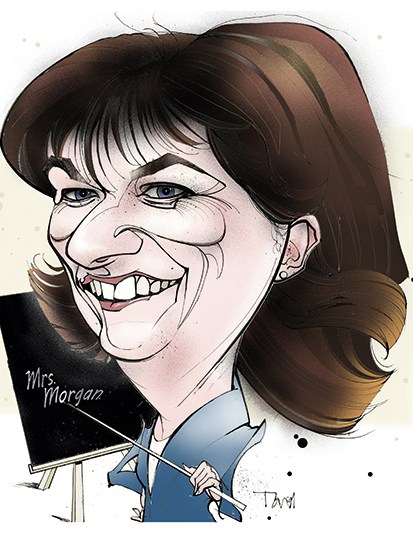

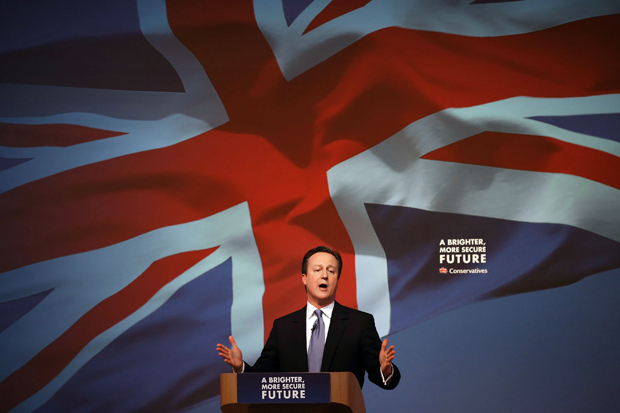
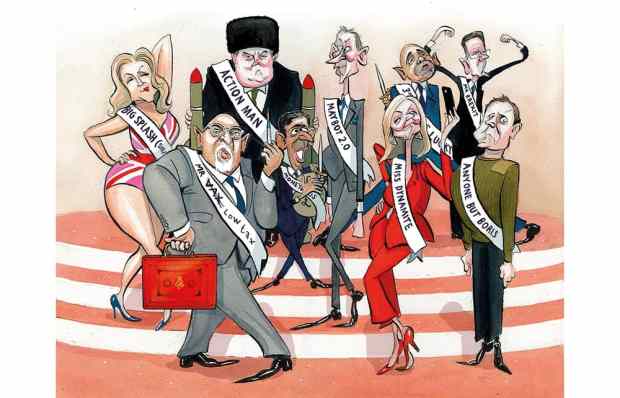
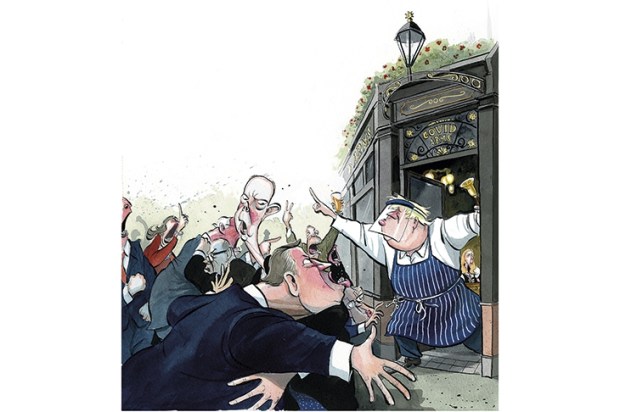

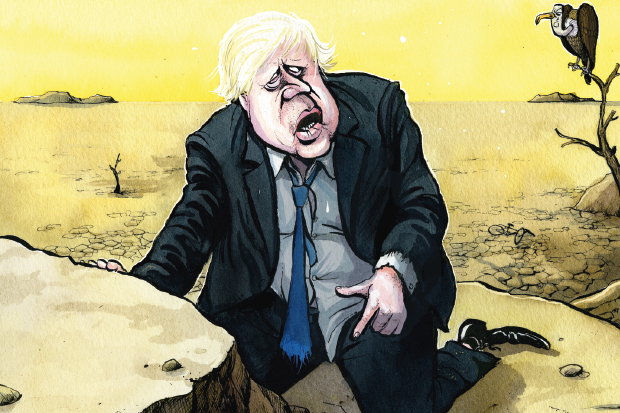







Comments
Don't miss out
Join the conversation with other Spectator Australia readers. Subscribe to leave a comment.
SUBSCRIBEAlready a subscriber? Log in